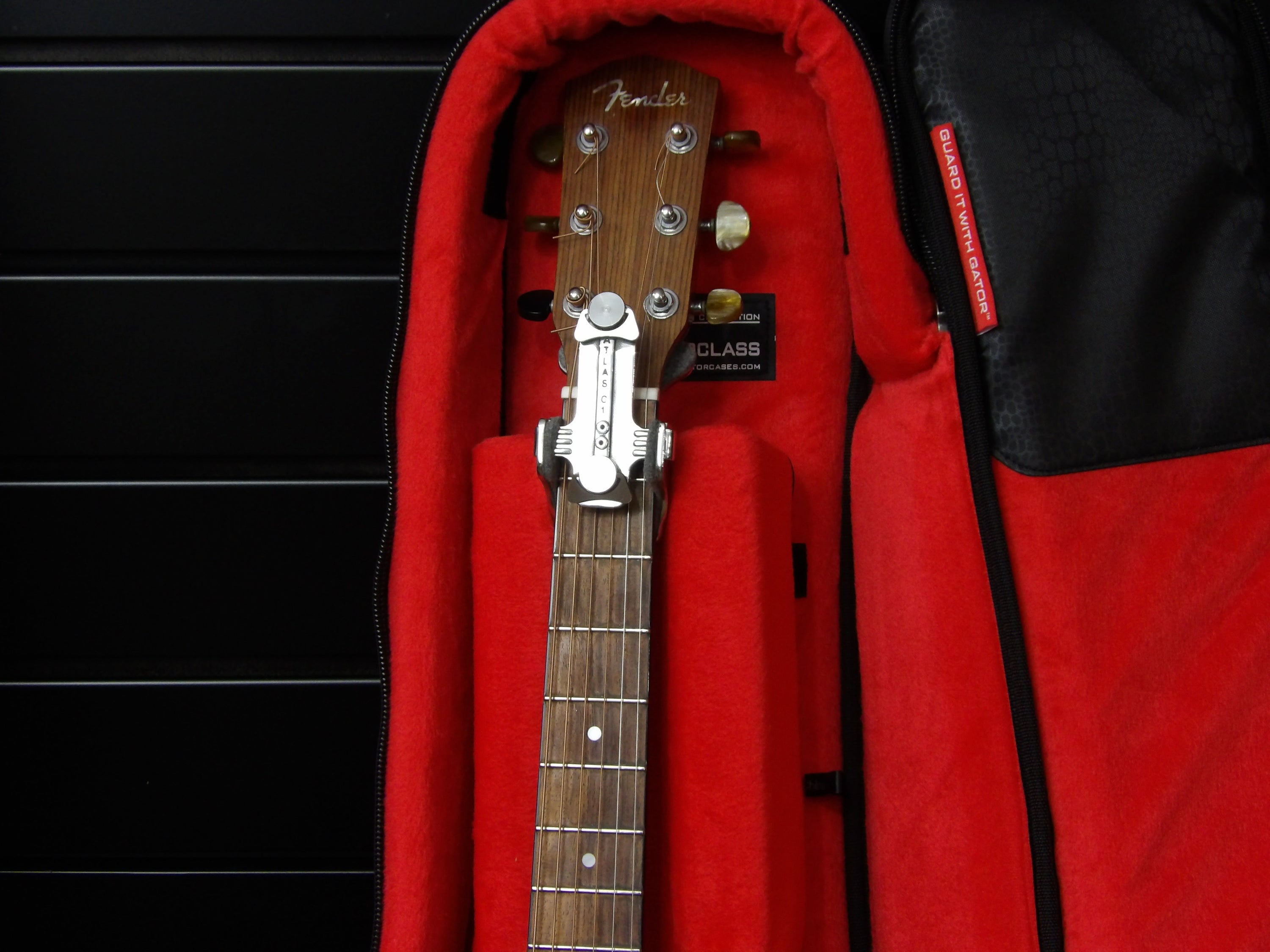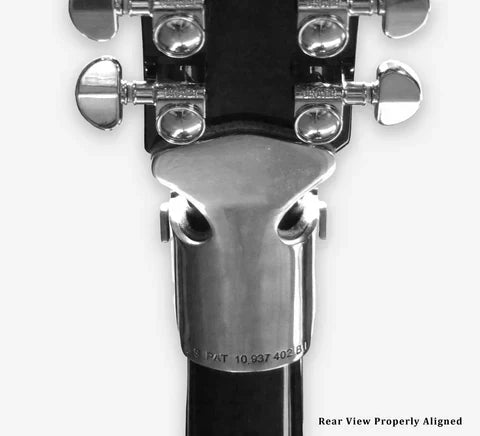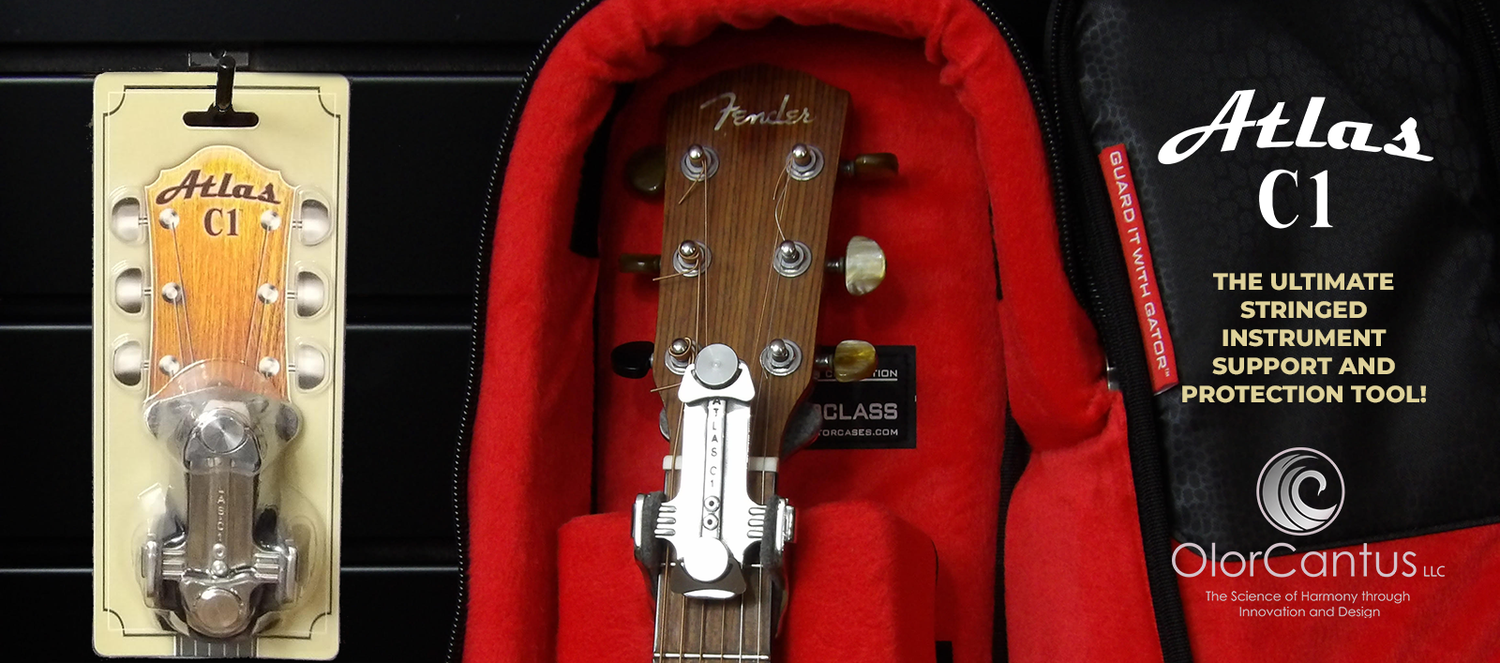For musicians, traveling with a guitar can be stressful. Airlines, road trips, and even simple venue changes can put your instrument at risk of damage. The most common problem? Headstock breaks and structural damage caused by improper handling, sudden impacts, or changes in temperature and humidity.
In this article, we’ll cover essential tips for protecting your guitar during travel, the risks of transporting a guitar without proper support, and why the Atlas C-1 is a must-have for traveling musicians.
Common Risks of Traveling with a Guitar
Traveling with a guitar presents several hazards, including:
- Rough Handling by Airlines – Baggage handlers don’t always treat instruments with care. Even in a hardshell case, guitars can suffer serious damage.
- Sudden Drops and Impacts – Whether it’s turbulence, a bumpy road trip, or someone knocking over your guitar case, sudden impacts can cause cracks or breaks.
- Changes in Temperature and Humidity – Flying to different climates or storing your guitar in a vehicle for hours can weaken the wood and glue joints, making your guitar more susceptible to damage.
- Lack of Internal Support in Guitar Cases – Standard hardshell cases don’t prevent headstock movement, leaving your instrument vulnerable to whiplash-like damage inside the case.
Essential Tips for Protecting Your Guitar While Traveling
To keep your guitar safe, follow these travel protection strategies:
- Use a High-Quality Hard Case – A sturdy case provides the first layer of protection against external forces.
- Add Internal Padding and Neck Support – The inside of the case should provide extra cushioning for the headstock and neck.
- Loosen the Strings Before Flying – This helps reduce tension on the neck and minimizes stress during transport.
- Use the Atlas C-1 for Headstock Protection – The Atlas C-1 counteracts string tension and prevents headstock movement inside the case, offering real protection against breaks.
- Mark Your Case as Fragile – While it doesn’t guarantee careful handling, labeling your case as "FRAGILE" can help encourage more careful treatment by baggage handlers.
- Hand-Carry Your Guitar When Possible – Many airlines allow guitars in overhead compartments if space permits. Always check airline policies before flying.
- Avoid Extreme Temperatures – Never leave your guitar in a hot car or cold cargo hold for extended periods.
Why the Atlas C-1 is Essential for Guitar Travel Protection
Even with a high-quality case, your guitar is at risk without proper internal support. The Atlas C-1 is designed to:
- Reinforce the headstock-neck joint, preventing breaks from sudden shocks.
- Absorb impacts that would otherwise cause fractures or cracks.
- Provide stability inside the case, reducing movement during flights or road travel.
- Protect against string tension damage, ensuring your guitar arrives safely at its destination.
Professional musicians who frequently travel trust the Atlas C-1 to keep their instruments safe. Check out real customer reviews to see how it’s helped touring guitarists.
Traveling with a guitar doesn’t have to be a gamble. With the right case, padding, and support system, you can protect your instrument from the most common travel risks. The Atlas C-1 is the ultimate solution for ensuring your guitar arrives intact—no matter where the road or sky takes you.
Don’t wait until disaster strikes—protect your guitar today and travel with confidence.








